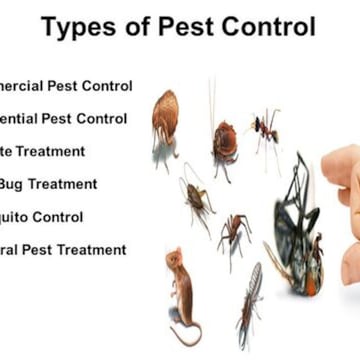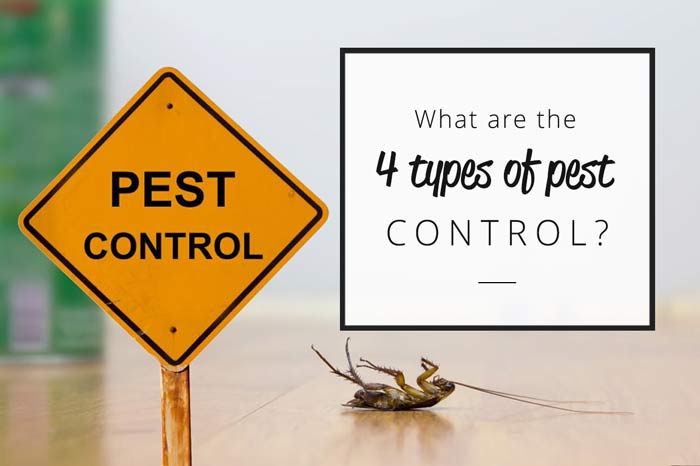Pest Control - An Overview
Pest Control - An Overview
Blog Article
Some Ideas on Pest Control You Need To Know
Table of ContentsThe Definitive Guide for Pest ControlGetting My Pest Control To WorkThe Only Guide for Pest ControlPest Control Things To Know Before You Get ThisThe Main Principles Of Pest Control
Limitations of Chemical Administration Have the ability to examine pest troubles, determine if management is necessary, and make proper suggestions using IPM methods. Be familiar with different approaches of bug monitoring - their advantages and constraints. Understand the value of beneficial insects. It is not possibleor also desirableto rid gardens of all insects.This phase goes over (IPM), an approach that uses knowledge about bugs and their, methods, nonchemical methods, and pesticides to handle insect troubles. Additional details about IPM for certain plants is included in phases that focus on those plants. Nonchemical parasite control procedures are emphasized in chapter 17, "Organic Gardening." Handling birds and animals is covered in phase 20, "Wild animals." Handling in the lawn and yard is covered in phase 6, "Weeds." Pests in a yard or landscape may consist of pests and mites, weeds,, creatures, and birds.
Pests and weeds, nonetheless, play a function in the. After growing a garden or developing a lawn, the all-natural process of plant succession starts to restore and nonnative plants.
What we call "bugs" become part of a natural system at job. An environment has no insects. Only human beings think about certain types pests when they happen where they are not desired. We will be much more successful in managing unwanted types when we realize that these organisms comply with foreseeable patterns that we can make use of to our advantage.
Fascination About Pest Control
Insects at risk to a pesticide were promptly killed, leaving immune ones to reproduce and increase. It came to be clear that pesticides alone would certainly not resolve all pest issues.
An IPM strategy allows some level of bugs in the environment. Parasites are a lot less most likely to survive a program that utilizes several approaches of decreasing their populations. Integrated parasite monitoring was initial suggested by entomologists since bugs were the initial group of parasites to verify challenging to manage with chemicals alone.
A limit is the point at which action ought to be taken. IPM has actually prolonged beyond insects to monitoring of all pest populaces: weeds, illness microorganisms, and mammals.
The Facts About Pest Control Uncovered
Monitoring as opposed to eradication of parasites is the objective. An IPM plan starts with a careful Continued analysis of each bug infestation. Just after that can one choose about the appropriate techniques required to reduce insect tasks. The life cycle of the bug, feasible damage, all-natural opponents, and effects of climate, amongst various other elements, are taken into consideration prior to a control plan is carried out - Pest Control.
Clover growing in a lawn might be deemed an unwanted weed, however as a bean it is manufacturing nitrogen for the soil and the blossoms are offering nectar to honey bees and various other. Resistance for some weeds might be part of an IPM plan. may be eating the leaves of a plant, but when they are identified as the larvae of Eastern tiger swallowtail butterflies, their damage might be tolerated so we can appreciate the gorgeous butterfly.

The 2nd most essential tool in pest administration is early intervention. read Reacting to troubles quickly, before they have time to multiply, calls for a less significant treatment.
All about Pest Control
Several secure, sensible, nonchemical methods of plant security and bug monitoring may lower or get rid of the demand to spray. Various other approaches are most advantageous when made use of with chemicals. To carry out monitoring methods properly and to reduce losses, garden enthusiasts should recognize the sorts of insects that attack plants and recognize pest biology.

Performing a dirt examination and using just the recommended amount of fertilizer and lime optimizes the benefit to the plant while minimizing issues connected to too much usage of plant food - Pest Control. Covering the soil with a number of inches of mulch protects the plant in several ways: lowering dirt water loss to dissipation, decreasing weed competitors, giving nutrients, and developing a suitable atmosphere for earthworms and bacteria that keep the soil loosened for roots and damage down organic product to launch nutrients
If mulch touches the trunk, it can produce a method for click this voles, microorganisms, and fungi to assault the plant. Do not use manure or garden compost that has not extensively disintegrated as a leading clothing since it can urge unwanted bugs. Study suggests that farming is harmful to soil framework.
Get This Report on Pest Control
If tilling is considered needed, consider doing it in the loss when the life cycles of many bugs brings them near the surface. At the surface area, bugs become subjected to the weather condition as well as birds and various other all-natural opponents.
Report this page